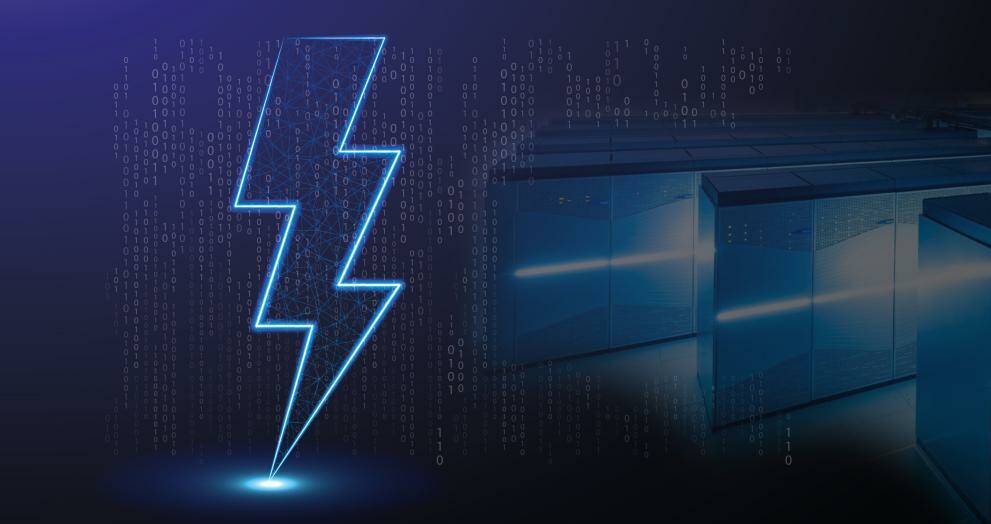Atos Subsidiary Eviden Scores Contract Win In Europe's First Exascale System

The EU's supercomputing initiative, the European High Performance Computing Joint Undertaking (EuroHPC JU), has awarded a procurement contract for Europe's first exascale system, with installation due to start in early 2024.
Known as Jupiter (Joint Undertaking Pioneer for Innovative and Transformative Exascale Research), the system was announced last year followed by a call for tender in January of this year.
EuroHPC JU said the procurement contract for Jupiter was awarded to a consortium comprising of Eviden, the professional services side of French IT giant Atos, and ParTec, a German supercomputing hardware company.
The project is expected to have a total cost of €273 million ($287 million) covering the build, delivery, installation, and maintenance of Jupiter, according to the EuroHPC.
However, Eviden put the overall project cost at €500 million ($526 million), saying that this is the figure for the entire project, including the system manufacturing and its operational costs for five years.
Half of the funding is coming from the EuroHPC JU itself, with the rest from Germany's Federal Ministry of Education and Research and the Ministry of Culture and Science of the State of North Rhine-Westphalia, where the system will be hosted at the Forschungszentrum Jülich campus and operated by the Jülich Supercomputing Center (JSC).
The hardware for Jupiter will be based on Atos/Eviden's BullSequana XH3000 direct liquid cooled architecture and will use SiPearl's Arm-based Rhea processors paired with unspecified Nvidia GPUs. The system has also been designed to support the integration of future technologies such as quantum computing.
Eviden said the system will be composed of two partitions: a highly scalable GPU accelerated Booster Module, and a general-purpose Cluster Module based on the SiPearl Rhea, the first European processor chip designed for high performance compute and said to have exceptionally high memory bandwidth.
More detailed specifications are set to be disclosed at the SC23 conference in November, but Eviden claimed that Jupiter would have three times the capability of Europe's current most powerful supercomputer, will take the space of about 4 tennis courts and have over 260km of high-performance interconnects, allowing it to transfer over 2,000 terabits per second.
Jupiter will be used to support the development of high-precision models of complex systems, the EuroHPC said, such as high-resolution simulations of the climate covering the entire Earth, creating digital twins of the human heart or brain for medical purposes and the inevitable training of large language models in AI.
- French monopoly cops raid Nvidia office in cloud probe
- UK government awards chunk of mega-billions tech framework
- Our AI habit is already changing the way we build datacenters
- Czech energy billionaire in talks to buy Atos unit in $2.2B deal
EuroHPC JU executive director Anders Dam Jensen called today's announcement a pivotal step forward in the endeavor to bring exascale computing to Europe.
"With the combined expertise of our partners and the EuroHPC JU's continued commitment to bolstering European computing power, Jupiter will revolutionize the European HPC landscape and reinforce European excellence in HPC," Jensen said.
Eviden's global head of HPC, AI & Quantum, Emmanuel Le Roux, said that providing the first exascale supercomputer in Europe was "a moment of true pride" for the company.
"The European scientific community will now benefit from a remarkable 'made in Europe' machine to tackle scientific challenges and stimulate innovation," he added.
Eviden (initially called Evidian) is a subsidiary formed from the digital, security and big data business operations of Atos Group, following a two-way split of the company announced last year. EP Equity Investment, run by Czech billionaire Daniel Křetínský, was said to be looking to buy the remainder of Atos for an estimated €2 billion ($2.1 billion). ®
From Chip War To Cloud War: The Next Frontier In Global Tech Competition
The global chip war, characterized by intense competition among nations and corporations for supremacy in semiconductor ... Read more
The High Stakes Of Tech Regulation: Security Risks And Market Dynamics
The influence of tech giants in the global economy continues to grow, raising crucial questions about how to balance sec... Read more
The Tyranny Of Instagram Interiors: Why It's Time To Break Free From Algorithm-Driven Aesthetics
Instagram has become a dominant force in shaping interior design trends, offering a seemingly endless stream of inspirat... Read more
The Data Crunch In AI: Strategies For Sustainability
Exploring solutions to the imminent exhaustion of internet data for AI training.As the artificial intelligence (AI) indu... Read more
Google Abandons Four-Year Effort To Remove Cookies From Chrome Browser
After four years of dedicated effort, Google has decided to abandon its plan to remove third-party cookies from its Chro... Read more
LinkedIn Embraces AI And Gamification To Drive User Engagement And Revenue
In an effort to tackle slowing revenue growth and enhance user engagement, LinkedIn is turning to artificial intelligenc... Read more

